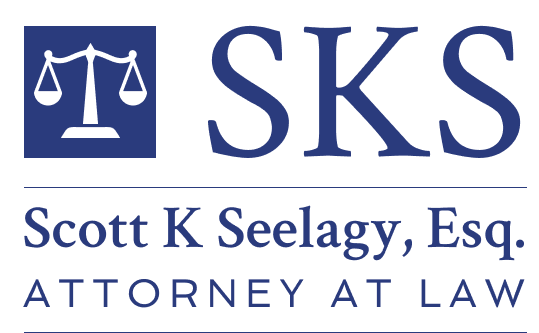Employment Law
Standing Up to Workplace Discrimination in New Jersey
Workplace discrimination can shatter careers and violate basic dignity. New Jersey’s Law Against Discrimination (LAD) is one of the strongest state laws in the country, prohibiting unfair treatment based on protected characteristics like race, gender, age, religion, disability, sexual orientation, and more. As a seasoned workplace discrimination attorney NJ employees trust, Scott Seelagy has fought for clients facing bias in hiring, promotions, pay, and other terms of employment. He has represented public and private sector workers who were passed over for jobs or treated unjustly at work because of who they are. Scott thoroughly investigates each claim, gathering evidence of disparate treatment—such as patterns of prejudiced comments, unequal discipline, or demotions without merit. By leveraging the LAD and federal laws like Title VII, he helps victims of discrimination hold their employers accountable and protect their employment rights under the law.
Fighting Workplace Harassment in New Jersey
Harassment on the job creates a hostile environment that no worker should endure. New Jersey law makes it illegal for employers to allow or engage in severe or pervasive harassment, especially when it targets someone’s protected characteristics. Workplace harassment can take many forms: sexual harassment (unwelcome advances, inappropriate touching, lewd comments), racial or ethnic slurs, derogatory jokes about disability or age, and other abusive behaviors that make it hard to do your job. Scott K. Seelagy is an experienced work harassment lawyer NJ who stands up for employees subjected to these toxic conditions. He listens compassionately to clients’ stories of bullying supervisors or offensive coworkers. Then he takes action – filing hostile work environment claims under the LAD or relevant statutes, demanding that employers address the misconduct or pay for the harm caused. Scott knows how to prove workplace harassment through witness statements, emails or texts, HR reports, and expert testimony about the toll on your mental health. His goal is to stop the abuse, obtain compensation for your distress and any career setbacks, and ensure you can work in a safe, respectful environment.
New Jersey Employment Law FAQ
Can I sue my employer for wrongful termination in NJ?
Yes. You can sue for wrongful termination in New Jersey if your firing violated the law or an employment agreement. While New Jersey is an “at-will” state (meaning an employer can generally fire an employee for any or no reason), exceptions exist. It is unlawful to terminate someone for discriminatory reasons (such as because of your race, gender, age, etc.) or in retaliation for protected activities (like whistleblowing or reporting harassment). If you believe your firing was based on illegal motives – for example, you were fired shortly after complaining about unsafe conditions or you have evidence you were replaced by someone outside your protected class – you likely have grounds to file a wrongful termination claim. An experienced employment attorney can evaluate your situation and advise on the best course of action.
Can I sue for workplace harassment in New Jersey?
Yes, you can take legal action for workplace harassment in NJ if the harassment is severe or pervasive and based on a protected characteristic. Under the New Jersey Law Against Discrimination, harassment (including sexual harassment) is considered a form of illegal discrimination when it creates a hostile work environment. This means if you are being subjected to offensive comments, unwanted touching, bullying, or other abusive behavior because of your sex, race, religion, disability, sexual orientation, or another protected trait, you have the right to pursue a claim. Typically, you should report the harassment to your employer (such as Human Resources) to give them a chance to address it. If they fail to stop the behavior or if the harasser is a high-level supervisor, you can file a complaint with the NJ Division on Civil Rights or sue in court under the LAD. A lawyer can help you gather evidence – like witness statements or copies of harassing messages – and build a strong case to hold your employer accountable and recover damages for your emotional distress and any career harm.
How do I prove workplace discrimination in NJ?
Proving workplace discrimination in New Jersey requires showing that you were treated unfairly because of a protected characteristic. Direct evidence (like an email saying, “We’re letting you go because you’re pregnant”) is powerful but rare. Most cases rely on circumstantial evidence. For example, you can demonstrate that you belong to a protected group, you were qualified for your position, you suffered an adverse employment action (fired, demoted, denied promotion), and the circumstances give rise to an inference of discrimination. This might include situations where someone outside your protected group was treated better – such as a less-qualified male colleague getting the promotion you deserved, or only older workers being laid off in a company “reorganization.” Documents, performance reviews, witness testimony, and company patterns (like a history of not hiring minorities into management) can all support your claim. It’s also important to document any complaints you made to HR about unfair treatment. An employment lawyer will help connect the dots, often using the legal framework of the LAD to show that discrimination was more likely than not the reason for the employer’s actions.
What laws protect employees from retaliation in New Jersey?
New Jersey provides strong protections against workplace retaliation. The two key laws are the New Jersey Law Against Discrimination (LAD) and the Conscientious Employee Protection Act (CEPA). The LAD makes it unlawful for an employer to retaliate against you for opposing or reporting discrimination or harassment, or for participating in an investigation (for instance, acting as a witness in a co-worker’s discrimination case). CEPA, often called New Jersey’s whistleblower law, protects employees who disclose or object to activities they reasonably believe are illegal, fraudulent, or violate public policy (such as health and safety regulations). Under CEPA, an employer cannot fire, demote, or otherwise punish you for whistleblowing or cooperating with authorities. In addition to these state laws, federal laws like Title VII and the Americans with Disabilities Act have anti-retaliation provisions, and public employees may have First Amendment protections when speaking out on matters of public concern. If you experience retaliation – such as sudden poor performance reviews, reassignment to a dead-end job, or termination – after engaging in a protected activity, these laws allow you to seek justice. Document the retaliatory actions and timing, and consult an attorney promptly to evaluate your options.
How long do I have to file a discrimination or wrongful termination claim in NJ?
The timeframe to file an employment claim in New Jersey depends on the type of claim, and it’s crucial not to miss these deadlines. For most discrimination and harassment claims under the LAD, you generally have two years from the date of the last discriminatory act to file a lawsuit in court. (Alternatively, you can file an administrative complaint with the NJ Division on Civil Rights within 180 days of the act, but many employees choose the court route for broader remedies.) For whistleblower retaliation claims under CEPA, the time limit is shorter – you have only one year from the retaliatory action to file a lawsuit. Wrongful termination cases that arise from discrimination or retaliation would follow those same timelines. If your claim involves federal laws (like a Title VII discrimination claim), you must first file with the Equal Employment Opportunity Commission (EEOC) or state agency within 300 days of the adverse action in New Jersey. Because calculating deadlines can be complex and missing one can bar your claim, it’s important to contact an employment lawyer as soon as possible. An attorney will ensure your case is filed timely and in the proper forum so you don’t lose your right to seek compensation.
Get Help from a NJ Employment Lawyer
Whether you’re facing harassment, wrongful termination, or retaliation, you deserve an advocate who understands New Jersey employment law. Scott Seelagy represents employees throughout the state, from Morristown to Newark, helping them hold employers accountable. Consultations are free, and we don’t charge fees unless we recover for you. Let’s talk about your situation today.

